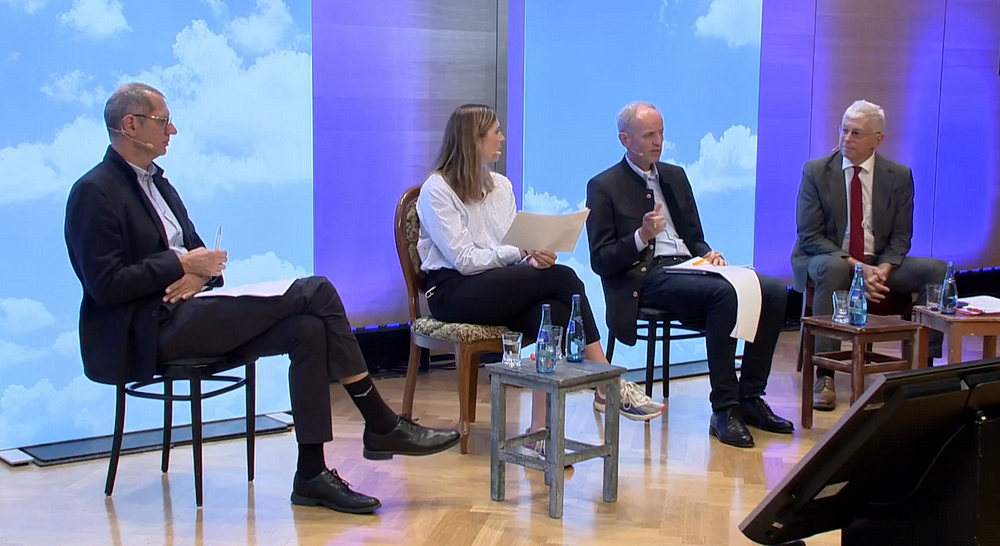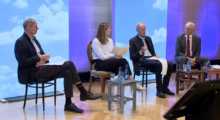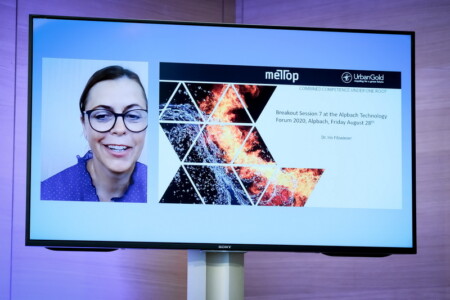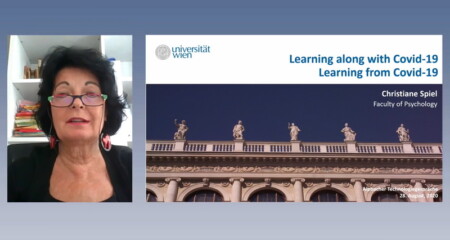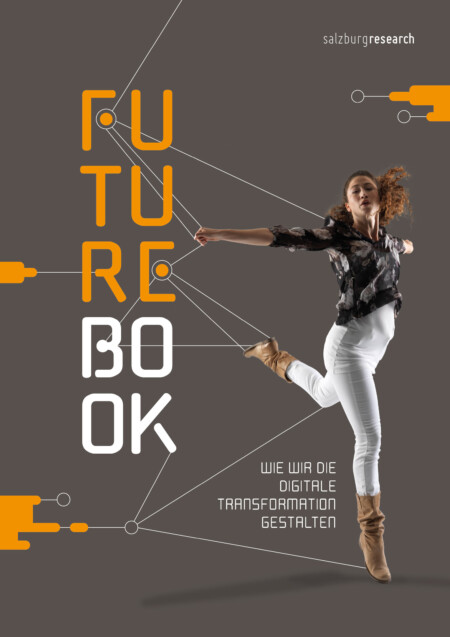The Covid-19 pandemic has caught us all on the wrong foot. We were (and still are) forced to take many decisions in this unfamiliar situation. We rely on experts: infectologists, virologists, hygenists, psychologists, mathematicians, rescue and emergency professionals, and many more.
The experts’ knowledge is – amongst other things – based on the results of existing research; with respect to its practical implementation mostly on applied research, i.e., research that seeks to solve specific problems.
Therefore, Forschung Austria, the umbrella organization of applied research in Austria, has organized a workshop during the Alpbach Technology Forum 2020 (#efatec) that discussed the role of applied research before (e.g. foresight studies), during (e.g. vaccine research) and after (e.g. acceleration of change) crises. We asked questions including how can crises and challenges in general lead to more sustainable economies and societies and how can research, technology and innovation contribute to this?
The panel was moderated by Sigi Reich (Director of Salzburg Research Forschungsgesellschaft).
The panellists were:
- Klaus Pseiner, director of the Austrian Funding Agency FFG
- Matthias Weber, Head of Center Innovation Systems and Policy, AIT Austrian Institute of Technology
- Iris Filzwieser, Managing Director, METTOP GmbH; President, Austrian Cooperative Research
- Christiane Spiel, Professor of Bildung-Psychology and Evaluation at the University of Vienna
- Eva-Maria Titz, Policy advisor to Minister Leonore Gewessler, ministry for climate action, environment, energy, mobility, innovation and technology
The Findings
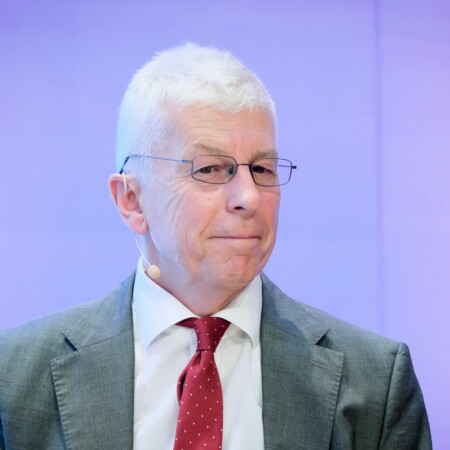
Klaus Pseiner reported that even though the current Covid-19 crisis came unexpectedly, the community including policy makers, funding agencies, RTOs and the companies reacted extremely quickly and professional: within weeks specific calls have been launched and researchers responded with high quality proposals. The cooperation between different players was essential and has proved successful!
We put five questions on total to the digital attendees. Here is number one, the results can be found below. Overall well over a hundred people answered each of the questions. So, what do you think?
Thesis #1:
Stakeholders, in particular politicians, will more rely on the scientists’ and experts’ advice that is based on findings of applied research, in particular for complex decisions such as those associated with the Covid-19 crisis, but equally for the climate crisis.
YES
agreed
NO
disagreed
Thesis #2:
Companies that maintain their applied research at a high level will come out strengthened of the crisis. Promotion of research and innovation therefore is a key element for mastering the crisis and the importance of government policy will increase.
YES
agreed
NO
disagreed

Matthias Weber argued that – similar to previous crises – innovative companies are doing better; and that anti-cyclic investment in research is to the advantage for companies, including SMEs. This finding, however, will depend on the length of the crisis (“V”-shaped vs. “U”-shaped). Therefore, with respect to Covid-19 public funding will be important especially for 2021.
Thesis #3:
The percentage of research projects that are concerned with simulation, virtualisation, … in other words: the role of digitalisation in research, will hugely increase.
YES
agreed
NO
disagreed
Thesis #4:
Social distancing and the increasing percentage of online meetings will lead to less innovation. This is due to the fact that the creative interaction between people needs physical presence, traveling to distant places, etc. to get new impressions and thus generate new and innovative ideas.
YES
agreed
NO
disagreed
Iris Filzwieser, founder and ower of METTOP and also president of the Austrian Cooperative Research Group (ACR) argued that almost all SMEs suffer severe liquidity challenges and that especially export-oriented SMEs are massively affected. She claimed also that some regulatory limitations should be eliminated (e.g. concerning financing).
Christiane Spiel, professor for Education-Psychology at the University of Vienna presented a study on the implications on learning, focusing on school children and students. She argued for the need of collaboration and with respect to the longer term perspective for the necessity to educate and train people in the so-called 21st century skills in order to be better prepared for unexpected situations.
Thesis #5:
Do we need to change and/or adapt our existing policy of applied research? In which aspects would that be necessary and which key elements would we see?
YES
agreed
NO
disagreed

Last but not least, Eva-Maria Titz reported in her role as policy advisor to the ministry of climate action that policy makers have put a lot of attention to research and innovation. “Tech for green” is an approach that will on the one hand help us out of the Covid-19 crisis and that will at the same time support the longer term development towards a more sustainable, CO2-neutral economy.
Conclusion:
So what can we take from this discussion?
There are different phases in tackling crises in general and the Covid-19 crisis in particular. For the upcoming 6 to 12 months we need support for liquidity and unburdening of regulations in order to support the SMEs.
The mid-term perspective, i.e., within the frame of the coming 5 years, requires additional activities for supporting innovation. Finally, for the perspective 2040 we need a solid education in the so-called 21st century skills in order to enable knowledge workers to collaboratively work in difficult situations in combination with an increase in “Tech for Green”-Activities and behavioural change.
And, above all, we need to stay optimistic!
